Dorothy Follis | |
|---|---|
 Follis, c. 1910s | |
| Born | 1892 Newark, New Jersey |
| Died | August 15, 1923 (aged 30–31) New York City |
| Other names | Dorothy Follies |
Dorothy Follis (1892 - August 15, 1923) was an American actress and soprano singer.
Dorothy Follis | |
|---|---|
 Follis, c. 1910s | |
| Born | 1892 Newark, New Jersey |
| Died | August 15, 1923 (aged 30–31) New York City |
| Other names | Dorothy Follies |
Dorothy Follis (1892 - August 15, 1923) was an American actress and soprano singer.
She was born in 1892 in Newark, New Jersey to Charles and Ruth Follis. [1] She showed talent at an early age and was tutored by William Thorner. [2]
Follis began her career in musical comedy. [3] She had been noted for her beauty and "perfect figure" in her stage work as early as 1909. [4] [5] [6] She was in the Broadway production of The Rose Maid in 1912, playing an heiress. [7] She took the occasion to take to the press and declare that "The society women of this country are awkward!" and offered them advice. [8]
She played the role of Lenore in the 40-week Broadway run of Honeydew. [7] [9] Follis was considered "the musical discovery of the season" in 1918 when she was signed to sing for the Chicago Grand Opera Company. [10] She also sang with the Boston Opera Company as well as the Cleveland, Detroit and Cincinnati Symphonies. [11] [12] She later formed her own company and toured around the United States. [11] [13]
She married newspaperman Karl Kitchen on February 04, 1922. [14] Follis died in New York after a short illness on August 15, 1923 and was buried in Evergreen Cemetery in Hillside, New Jersey. [15]

Lillian Russell was an American actress and singer. She became one of the most famous actresses and singers of the late 19th and early 20th centuries, praised for her beauty and style, as well as for her voice and stage presence.
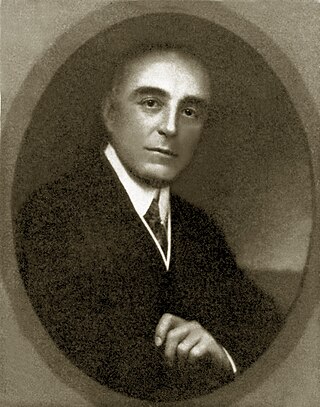
Pierre Ernest Jules Brulatour was a pioneering executive figure in American silent cinema. Beginning as American distribution representative for Lumiere Brothers raw film stock in 1907, he joined producer Carl Laemmle in forming the Motion Picture Distributing and Sales Company in 1909, effectively weakening the stronghold of the Motion Picture Patents Company, headed by Thomas Edison, a large trust company that was then monopolizing the American film industry through contracts with hand-picked, established studios. By 1911 Brulatour was president of the Sales Company. He was a founder of the Universal Film Manufacturing Company, later known as Universal Pictures.

Elaine Hammerstein was an American silent film and stage actress.
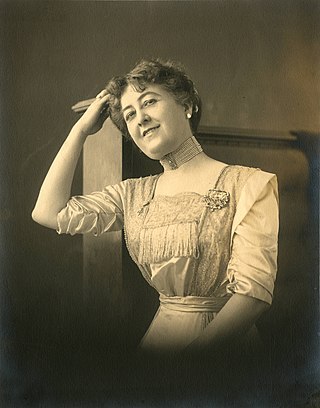
Helen Dunbar was an American theatrical performer and silent film actress.

Eugenie Besserer was a French-American actress who starred in silent films and features of the early sound motion-picture era, beginning in 1910. Her most prominent role is that of the title character's mother in the first talkie film, The Jazz Singer.

Gladys Hulette was an American silent film actress from Arcade, New York, United States. Her career began in the early years of silent movies and continued until the mid-1930s. She first performed on stage at the age of three and on screen when she was seven years old. Hulette was also a talented artist. Her mother was an opera star.

Helen Lindroth was a Swedish-born American screen and stage actress.

Ruth Vincent was an English opera singer and actress, best remembered for her performances in soprano roles of the Savoy Operas with the D'Oyly Carte Opera Company in the 1890s and her roles in the West End during the first decade of the 20th century, particularly her role as Sophia in Tom Jones.

The Casino Theatre was a Broadway theatre located at 1404 Broadway and West 39th Street in New York City. Built in 1882, it was a leading presenter of mostly musicals and operettas until it closed in 1930.
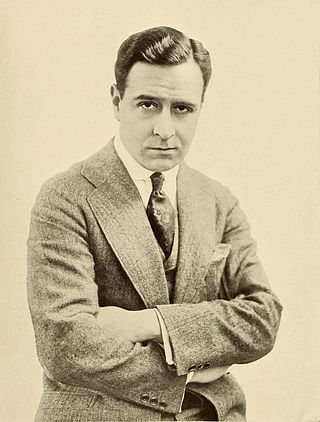
Conway Tearle was an American stage actor who went on to perform in silent and early sound films.

Maude Turner Gordon was an American actress who appeared in 81 films between 1914 and 1938.

Elizabeth Amsden was an American operatic soprano. She had an active international opera career during the early 20th century.

Hennetta Irma Prichard Hopper was an American fencer, singer, and songwriter. She competed in the women's individual foil events at the 1924 and 1928 Summer Olympics.
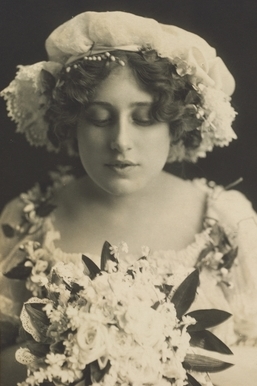
Christine Dorothy Brunton, popularly known as Dorothy Brunton, was an Australian singer and actress prominent in musical comedy in Australia and England from the early-1910s to the mid-1930s. She was born into a theatrical family, her mother had been an actress and her father worked as a stage scene designer and painter. Her early roles were in melodramas for the Bland Holt touring company, for which her father worked. From October 1910 Brunton was engaged by J. C. Williamson's New Comic Opera Company, performing in musical comedy roles and acting as understudy to more established actresses.
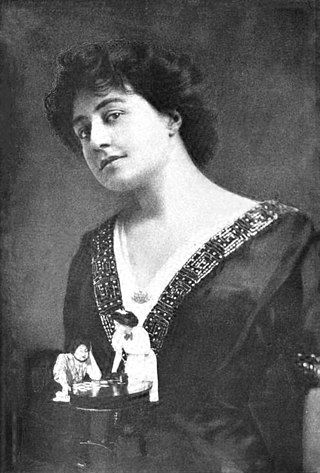
Dorothy Agnes Donnelly was an actress, playwright, librettist, producer, and director. After a decade-long acting career that included several notable roles on Broadway, she turned to writing plays, musicals and operettas, including more than a dozen on Broadway including several long-running successes. Her most famous libretto was The Student Prince (1924), in collaboration with composer Sigmund Romberg.

Frank Losee was an American stage and screen actor. A veteran of the Broadway stage he began in silent films in 1915. Often he played the father of Mary Pickford, Pauline Frederick and Marguerite Clark.
Jesse C. Huffman (1869–1935) was an American theatrical director. Between 1906 and 1932 he directed or staged over 200 shows, mostly for the Shubert Brothers. Many of them were musical revues, musicals or operettas. He is known for The Passing Show series of revues that he staged from 1914 to 1924 at the Winter Garden Theatre on Broadway, daring alternatives to the Ziegfeld Follies.

Mabel Isabel Riegelman was a popular American operatic soprano.

Frances Nordstrom was an American actress and playwright.

Jeanne Maubourg was a Belgian operatic mezzo-soprano. She sang with the Metropolitan Opera in New York from 1909 to 1914, taught voice in Montreal, and was heard in Canadian radio dramas in the 1930s and 1940s.